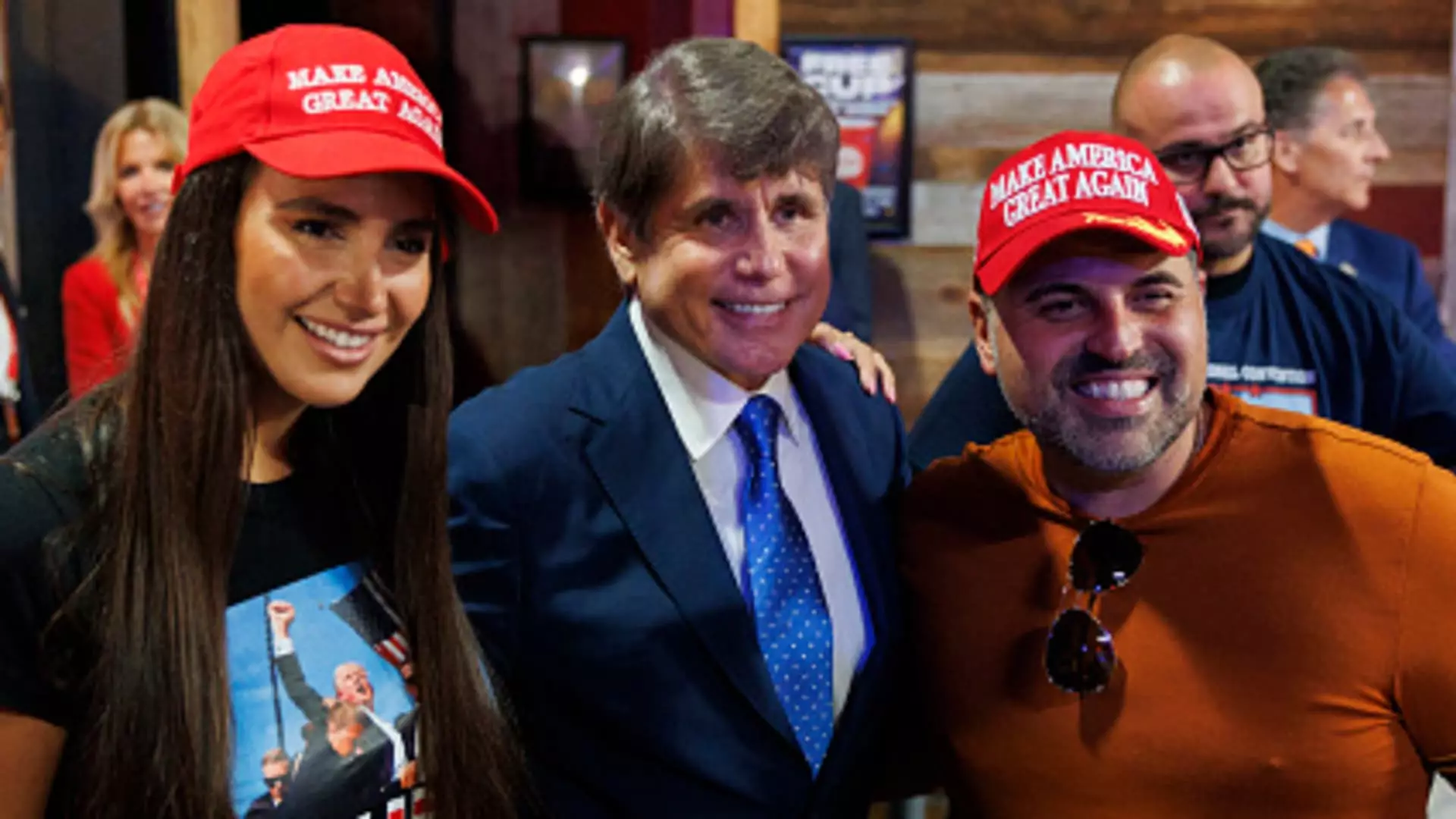The political landscape of Illinois has often been marred by scandal, yet none has been as prominent or polarizing as the case of former Governor Rod Blagojevich. In 2009, he was embroiled in a high-profile corruption case, primarily tied to his attempts to sell Barack Obama’s Senate seat after Obama ascended to the presidency. This egregious misuse of power and blatant disregard for ethical governance led to Blagojevich’s impeachment and subsequent conviction on multiple counts, including lying to federal agents. Despite the severity of the charges, there remains a notable divide in public opinion regarding the legitimacy and severity of his punishment.
On a seemingly routine day in Washington, President Donald Trump announced his decision to grant Blagojevich a full pardon, effectively overturning the remnants of a lengthy sentence that originally spanned fourteen years. The act of pardoning an individual convicted of corruption not only raised eyebrows but ignited a spirited debate surrounding the implications of such a decision. Trump’s assertion that Blagojevich is a “very fine person” hints at a personal rapport between the two, which, while intriguing, does not mitigate the broader concerns about political favoritism and integrity within public office.
In an unusual twist, Blagojevich’s stint on “The Celebrity Apprentice” appears to have served as a bridge to his eventual pardon. The show, which showcased the former governor in a different light, arguably contributed to a narrative that softened his public persona. This intersection of politics and entertainment raises significant questions—are leaders of a nation influenced more by personal relationships forged in celebrity culture than by the statutes of justice? It is critical to analyze whether the allure of fame can overshadow the essential tenets of accountability and public trust.
Despite the serious nature of Blagojevich’s offenses, it is essential to understand the complex dynamics of corruption within the political sphere. Illinois has struggled with corruption allegations for decades, often leading to a perception that politicians are inherently dishonest. While this perception is not unfounded, it also obscures the nuances of individual cases. The outcry from Illinois’ Republican Congressional delegation, who publicly urged Trump to refrain from commuting Blagojevich’s sentence, highlights a broader call for integrity within governance. They emphasized the dire need to combat the pervasive culture of “pay-to-play” politics, suggesting that pardoning a convicted politician sends a counterproductive message, especially in a state grappling with a history of corruption.
The pardon of Rod Blagojevich exemplifies the precarious balance between justice, politics, and personal relationships. As the narrative surrounding this case unfolds, it will undoubtedly influence how future acts of corruption are perceived and addressed. The action taken by Trump may pave the way for a reevaluation of how political figures are held accountable and the implications this has for the integrity of the American political system. In a nation where trust in leadership is paramount, the pardoning of a figure synonymous with corruption will continue to challenge the principles of fairness and transparency that underpin democratic governance. Moving forward, it is crucial to remain vigilant and critical of such pardons, ensuring they do not undermine the very foundations of justice.

